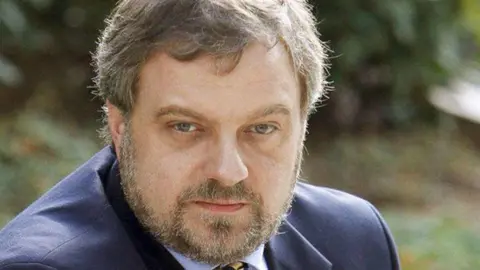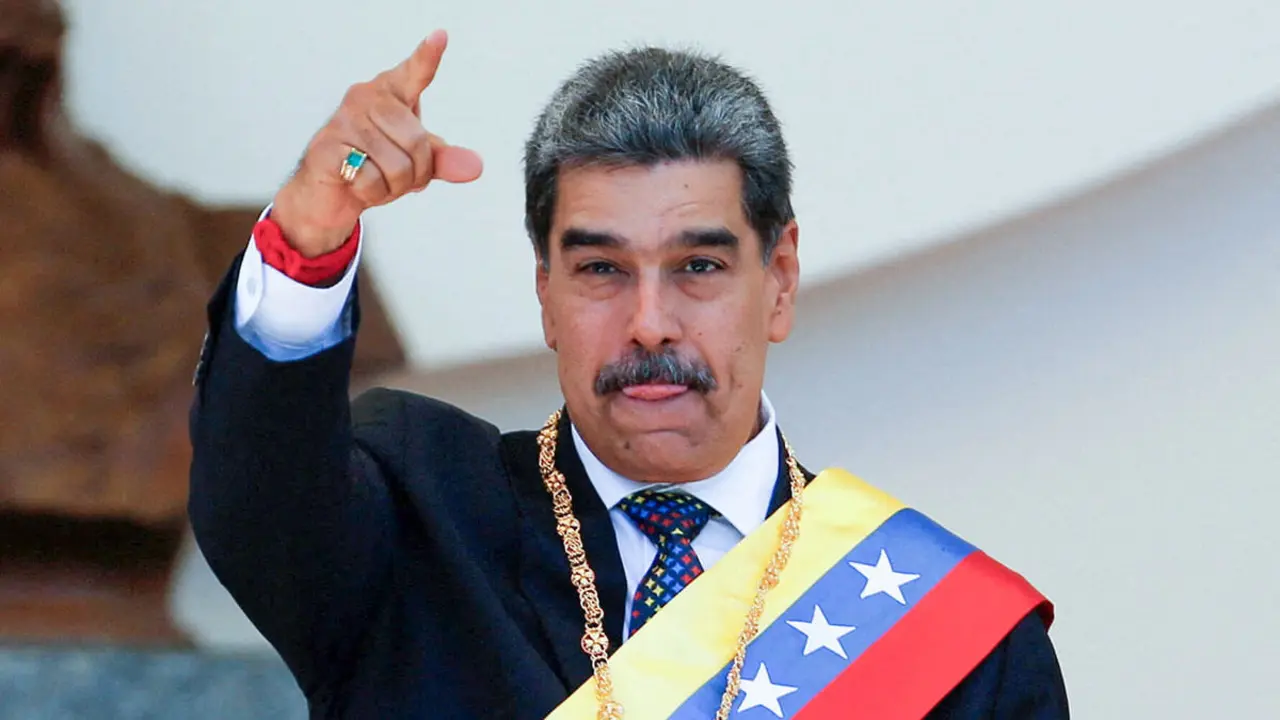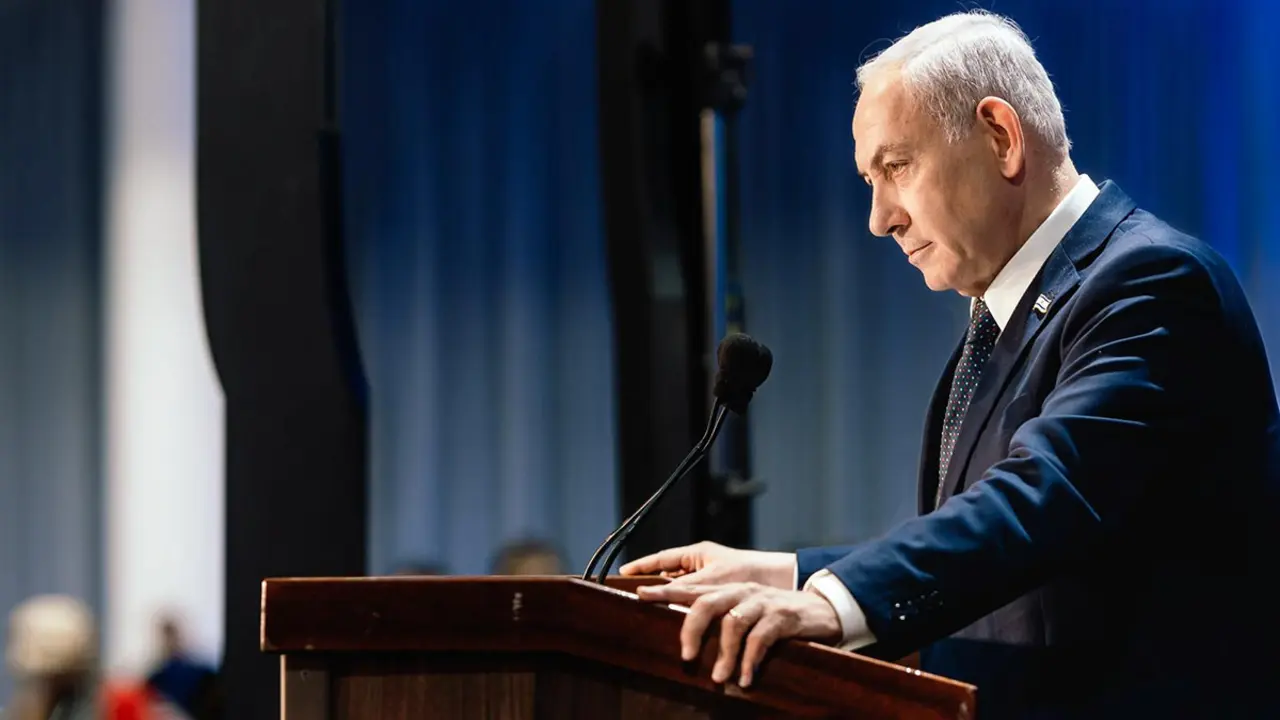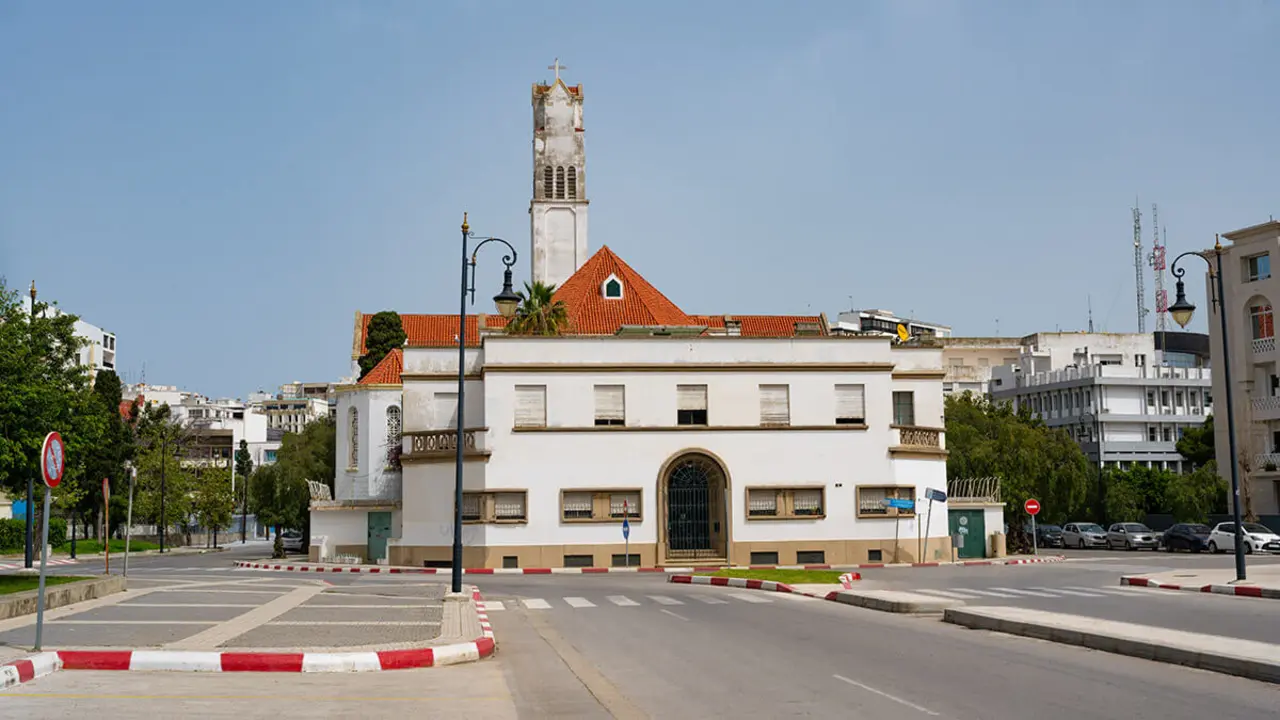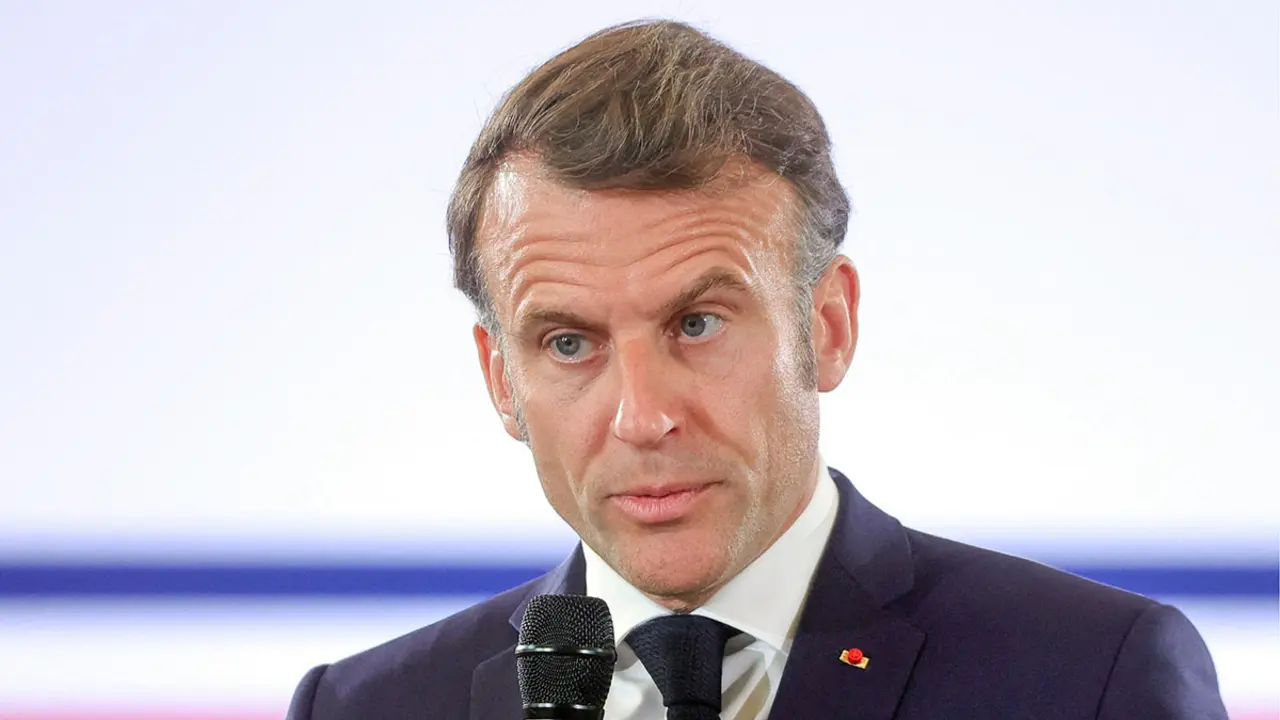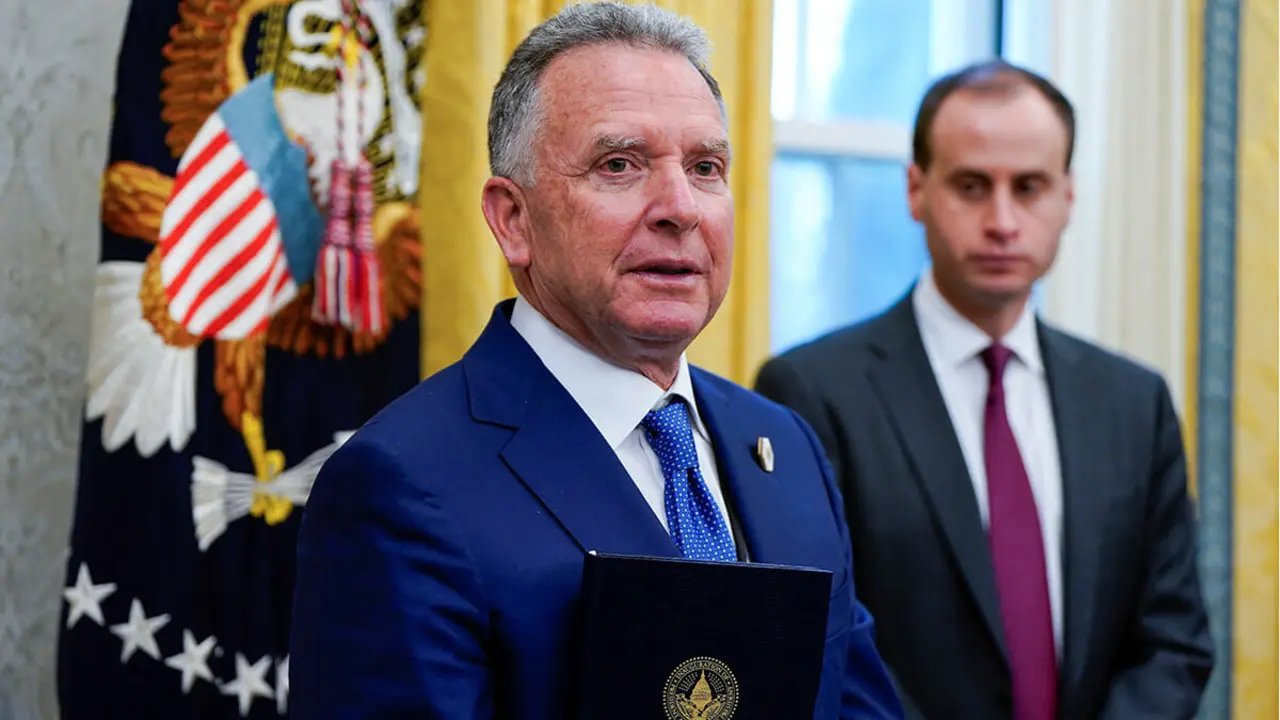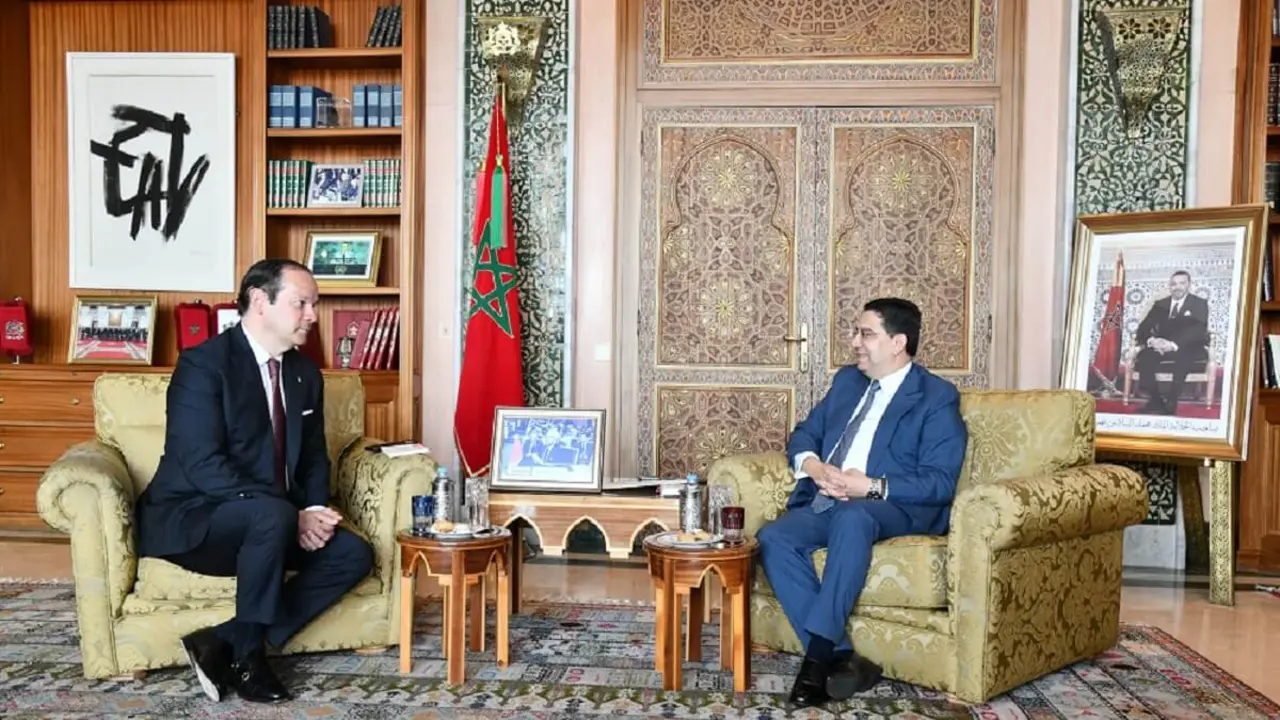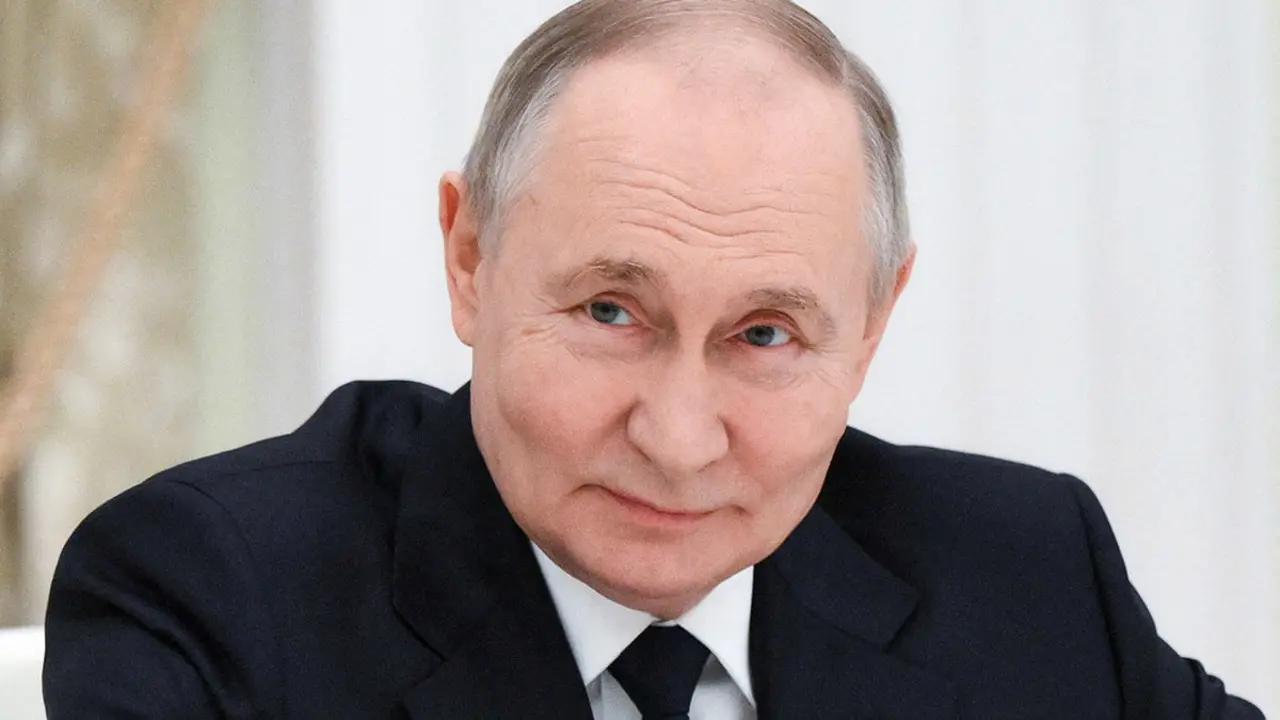Spain's government is a reflection of EU political inaction

From within the European Union, there is hope that a ceasefire will be imposed to give way to a diplomatic solution. The increase in tension is beginning to cause concern, and there are fears that diplomacy is being tied hand and foot in the face of Iranian threats and the silent support of Russia and China. Antonio López Istúriz, MEP and Chairman of the Committee on Relations with Israel, spoke to the microphones of Onda Madrid's "De cara al mundo" to address the situation.
Mr López Istúriz, "if dictators and terrorists do not pay a price for what they do, chaos and destruction will increase in other parts of the world". Do you agree with this statement by US President Joe Biden?
Absolutely. We all have to understand that issues that seem to us to be isolated and distinct from each other, such as the war in Ukraine, the Hamas terrorist attack, the Hamas assassinations against Israel or the tensions in Taiwan, are connected. We live in a polarised world, unfortunately we see it constantly on social media, a world that reminds us a bit of the old Cold War, where two superpowers, in this case the United States and China, in the past it was Russia, but Russia is also very active in this new phase, are pitting a democratic model of freedoms against dictatorships and authoritarian regimes.
The pieces on the chessboard are moving. These dictatorial powers or authoritarian regimes are using these pieces in a mafia-like way to try to cow us, to try to make those of us who are democrats leave, but everyone understands that there are countries that are not Western, that want this democracy, that are fighting for it, but that unfortunately they are threatened by terrorist organisations that go hand in hand with these countries, be it Iran or Russia, that are together because it is public knowledge that Iran is helping Russia in the war in Ukraine, sending it drones, military material, intelligence. When I refer to Iran, I want to specify that we are talking about the regime of the fundamentalist ayatollahs, religious fanatics, not about Iranian society, which as we know is very critical of this regime, in a country where there are 30 000 political prisoners, hundreds of people have died and women do not have any rights, with this regime that carries out a total persecution of people's rights.
Iran has been the one to make a move with the Hamas terrorist attacks, because Hamas is certified to be totally dependent on Iran financially and politically, just like Hezbollah in southern Lebanon, which has been destroying a wonderful country like Lebanon for years, decades, due to the actions of Hezbollah, another organisation much more powerful than Hamas, which for now has not entered the scene of this conflict, but which the whole world is very alert to: Israel, the United States, we Europeans.... Let's hope not. It is all part of an international issue, of a new distribution of roles, and we have to get used to the fact that we are trying to defend ourselves against these authoritarian regimes, against the terrorist assignments that they endorse.
What is necessary to prevent the advance of the dictatorial regimes that threaten Western societies so much?
Unity in the messages, in the fight against terrorism. In Spain, unfortunately, we have had our share of terrorism and we know that it can only be defeated with the unity of all the political forces and coordination with the State security forces and bodies and support for those who are fighting terrorism, be it Israel or whoever.
Mr López Istúriz, why is Spain not in the group of five Western powers such as the United States, the United Kingdom, France, Germany and Italy, which, for example, condemned Hamas's actions in a communiqué, or what effects might that have?
Spain, during the 1990s, was the fundamental country, mediating between the parties with the Madrid agreements, which were signed during the period of Felipe González's government or later. The best international period this country has had was under González and José María Aznar, people who were very different ideologically, but clearly, on international and European issues, aware of the need for consensus that existed at that time between the main political forces, the PSOE (Spanish Socialist Workers' Party) and the PP (Popular Party), on international matters. Since José Luis Rodríguez Zapatero that has no longer existed, and with Pedro Sánchez the situation of Spain's foreign policy is well known.
Do these indecisions and divisions in the government affect Spain's image on the international stage?
Spain's image with a tremendously divided government, a government that holds the presidency of the European Union. Let me explain, Europe has the European Council, there are the prime ministers, who are still the ones in charge of the European Union, rather than Brussels, they meet and have a forum called the European Council. The European Council has a rotating rotation, presided over by each country every six months. Now, in these very months, it is Spain's turn to play no role, and the European Union is completely under-represented on this issue at the moment, due to the internal problems of the Socialist Party with its Sumar partners, with messages and statements from ministers and vice-presidents of the Government, who have this habit, as always in everything, of demonstrating at weekends against the same things that they then support on Monday in meetings of the Councils of Ministers. This is absolutely inconceivable and it is very confusing for our allies abroad.
In the Western world, governments do not understand how there can be this division on such a sensitive issue as the fight against terrorism and international relations. That is why Spain, unfortunately, cannot at this time, at a fundamental moment, as in the past, represent sanity and the ability to negotiate between the integral parts of Palestine. You will understand that, after the statements by politicians and politicians from Podemos and Sumar, it is impossible for Israel to accept a mediating role for Spain, even though the Minister for Foreign Affairs, Mr Albares, stated that no, that "in the end it is the President of the Government who dictates foreign policy", when half an hour later Ione Belarra stated the opposite, also on behalf of the Government.
But all this is not lost on the international media, nor on the international chancelleries, which are watching this with great confusion, and it is a tremendously negative image for our country that I do not think we deserve.

Ukraine has been a very, very big challenge to European unity. Now, the war between Israel and Hamas, we have also seen how the President of the European Commission and the President of the European Parliament immediately went to Israel. Then the German chancellor, Scholz, then the British Prime Minister Sunak. Macron too. The Spanish President of the Government, the President of the European Union, did not go to Israel. European unity is also at stake because of this situation, this serious international crisis.
It is traditional in this European Union that we have with 27 partners, each one with its culture, politics, with its traditions. We are very different. When you have to deal with an issue, 27 different opinions come together.
It is traditional and normal that, in the face of crises, at the beginning we Europeans show certain divisions of criteria, in terms of how to reach or how to deal with a crisis. Even so, history is showing us unity, there is COVID, there is Ukraine, there was Brexit; the truth is that, in the face of all these challenges, unity has prevailed in the end. With Brexit, the British thought they were going to be able to divide Europeans. They did not succeed. COVID started the same way, with all the governments closing borders, each one saying something different. And, in the end, they all came to Brussels to ask for coordination. Because the supermarkets were empty because the borders were closed by the governments, and in the end it was Brussels that opened the borders so that food and sanitary goods could circulate.
In the Ukraine crisis, European societies have been much more assertive, even more so than the political class, which was initially slow to react after Russia's invasion. Because European society really realises that we are surrounded by these kinds of regimes, that they don't want us, that they don't want our democracy and we have to defend it. The Ukrainians are doing it for us, the Israelis are doing it for us and so many others. Let us start to help and let us start to show unity of opinion.
The fact that the European Parliament and the Council are not present in Brussels has several explanations. One of them is the division that always exists within the Council because it is the governments, it is the 27 governments that always start with a division on everything. It doesn't matter what the issue is. It is normal and logical in any matter, but then in the end they end up coming together.
Why do the European Parliament and the Commission go to Israel and the Council does not?
Because Spain is currently presiding over the European Union, and Spain has a government that is divided, and on top of that it is in a situation of candidacy after the elections. With all these negotiations that we are seeing, absolutely crazy sessions, all of this prevents them from being present at this fundamental moment in the history of the world, in the history of Spain, which could play this role, if we were not entangled in low-level politics here in Spain at the moment, with statements by people who lack knowledge of international politics and whose statements are enormously detrimental to Spain's interests.
This was known in the past, but today it is madness, because statements are made without thinking that they could be affecting investments in Spain or Spanish investments abroad, our companies, which could suffer the consequences of all this.

